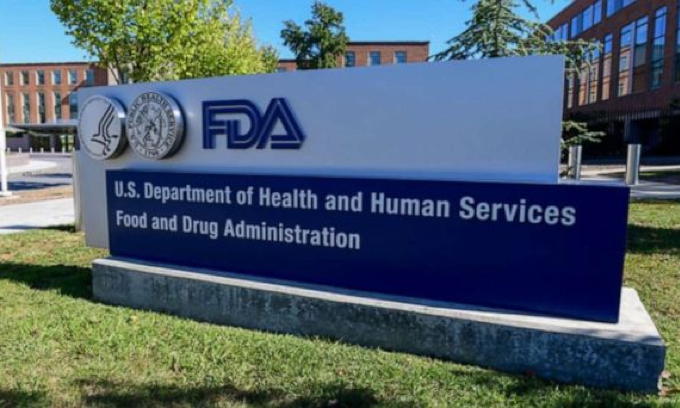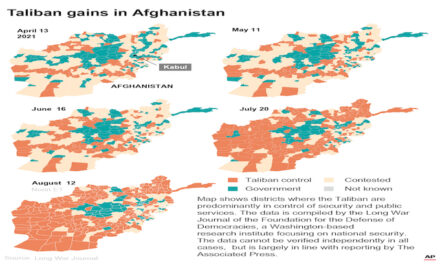The U.S. Food and Drug Administration (FDA) is refusing to say whether it will add the possible side effect of seizures to labels for the two most widely used COVID-19 vaccines, after researchers with the agency detected a safety signal for seizures following Moderna and Pfizer-BioNTech COVID-19 vaccination.
In a preprint paper published in late 2023, researchers with the FDA said that seizures and convulsions among children aged 2 to 5 after COVID-19 vaccination set off a safety signal in health care databases. A peer-reviewed version of the paper was published on April 24.
Another recent paper from FDA scientists, published in March, found that young children faced a higher risk of seizures shortly after receipt of the Moderna or Pfizer shots.
The Epoch Times on April 29 asked the FDA whether the agency would be updating labels for the vaccines to reflect the safety signal finding, as the labels for the vaccines currently do not list seizures as a possible side effect.
An FDA spokesperson on Monday acknowledged receipt of the query and promised to “be back in touch shortly.” But neither the spokesperson nor any other FDA officials answered questions prior to the deadline they were given, which was over 36 hours after the query was received.
The FDA has also not disseminated the results of its study to the public through a press release or other means of communication.
Kim Witczak, who heads the drug safety advocacy organization Woodymatters, said that the FDA should take steps to highlight the findings.
“While further investigations are underway, the FDA should promptly notify health care professionals and the public about the emerging real-world signal of seizures with COVID vaccines,” Ms. Witczak told The Epoch Times in an email. “However, this assumes the FDA is prioritizing its duty and not acting against the public’s interest. Time and again, the FDA appears reluctant to transparently communicate potential safety concerns, seemingly prioritizing product protection over public safety, especially for the most vulnerable populations.”
In the study, researchers with the FDA and health care companies reported that safety signals were detected among children aged 2 to 4 following Pfizer vaccination and children aged 2 to 5 following Moderna vaccination. A safety signal is a sign that a health condition may be caused by vaccination. The signals “should be further investigated in a robust epidemiologic study,” the researchers said. It’s not clear whether the FDA plans to conduct that study itself.
Moderna and Pfizer have not responded to requests for comment on the paper.
Ms. Witczak and other members of the Coalition Advocating for Adequately Labeled Medicines previously urged the FDA to update labeling for the Pfizer and Moderna COVID-19 vaccines to reflect studies that have been conducted after the agency cleared the shots in late 2020.
The coalition pointed to papers that found evidence of adverse events such as heavy menstrual bleeding following COVID-19 vaccination and said the labels should note the findings.
The FDA declined to add any of the events to the labels, saying the papers did not establish “a causal relationship” between the vaccines and the events.
“I don’t expect the FDA to update the COVID vaccine labels to add their own findings,” Ms. Witczak said. “We tried before with our citizen petition asking them to update the labels with emerging side effects as confirmed by reputable studies and were denied.”
Federal regulations state that a section titled “adverse events” on the labels of approved drugs has to outline the “overall adverse reaction profile of the drug based on the entire safety database“ and defines an adverse reaction as ”an undesirable effect, reasonably associated with use of a drug, that may occur as part of the pharmacological action of the drug or may be unpredictable in its occurrence.” The regulation, though, states that it only covers “those adverse events for which there is some basis to believe there is a causal relationship between the drug and the occurrence of the adverse event.”
Dr. Peter Marks, a top FDA official, told the coalition that “FDA decisions about whether to include an adverse event from spontaneous reports in labeling are typically based on one or more of the following factors: seriousness of the event, number of reports, or strength of causal relationship to the drug/vaccine.” Evidence supporting the latter include “the frequency of reporting, biological plausibility, the timing of the event relative to the time of vaccination, and whether the adverse event is known to be caused by related vaccines,” he added.
The current labels for the Moderna and Pfizer vaccines largely rely on data from clinical trials run by the drug manufacturers. In the adverse events section, most events are common reactions such as fever that were widely recorded in the trials. There is one mention of convulsion, which occurred in a 1-year-old girl and was judged as being “related to vaccination,” on the Moderna label.
The five reactions listed as being identified after clearance are heart inflammation, pericarditis, severe allergic shock, hives, and fainting. “Because these reactions are reported voluntarily, it is not always possible to reliably estimate their frequency or establish a causal relationship to vaccine exposure,” the labels state.



















The only warning safety signal THE PEOPLE need now fear, is when Fauci opens his mouth and your privates get searched and your healthcare is seized. Anyone in search of a brain seizure, just follow the bouncing buffoon. The primary deleterious “causal relationship” between the vaccines and the events, began when WE THE PEOPLE formed a relationship with the fickle’d vaccine finger of Fauci that caused us most of the COVID pain.
I won’t take, ANY OF THESE shots.. Heck, i’ve not gotten a single Flu shot, since i left the military in 2012.